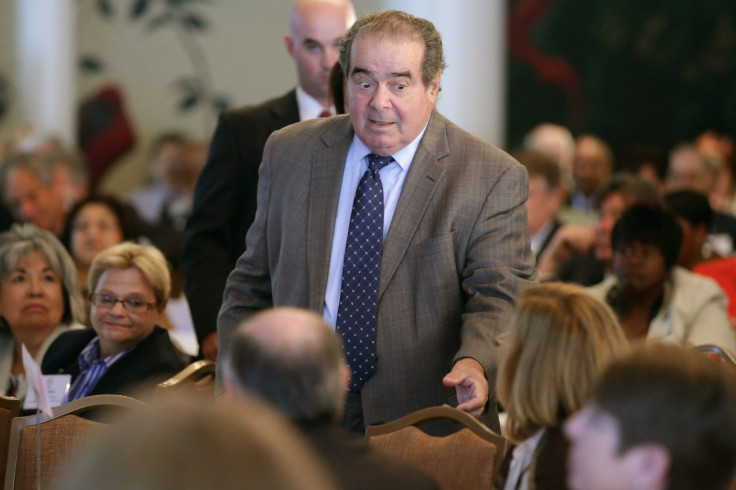US Justice Antonin Scalia Died Of Apparent Heart Attack, Body Taken To El Paso Funeral Home

UPDATE: 5 p.m. EST — A source told CNN no autopsy would be performed on U.S. Supreme Court Justice Antonin Scalia. The Washington Post tweeted the judge who affirmed Scalia’s death did not order an autopsy, and his family did not ask for one.
The judge who pronounced Scalia dead didn't order an autopsy his family didn't ask for one https://t.co/8EVGCnsdS0 pic.twitter.com/AfwF4RfgOj
— Mark Berman (@markberman) February 14, 2016
Original story:
The body of U.S. Supreme Court Justice Antonin Scalia was released to an El Paso, Texas, funeral home Sunday, one day after he was found dead at a Marfa-area resort ranch. Scalia reportedly died of an apparent heart attack amid plans to go quail hunting.
Scalia’s body was taken from the Cibolo Creek Ranch in the Big Bend region to the Sunset Funeral Homes, said Chris Lugan, a spokesman for the funeral home. He was embalmed about 4 a.m., the San Antonio News Express reported. It was not immediately clear whether an autopsy would be performed.
Scalia’s body was escorted by a procession of 20 law enforcement officers, the Associated Press reported. It was expected to be flown home to Virginia Tuesday, and flags were ordered flown at half-staff on federal buildings around the nation and U.S. embassies and military facilities around the world.
As speculation swirled over who would be nominated to take his place on the nation’s high court by President Barack Obama, Republicans vowed to block any nomination until after the November election. Such a delay could mean the court would remain split 4-4, conservatives to liberals, not only through the current term but through the 2017-18 term as well, since a new president will not take office until January 2017. Decisions split 4-4 mean the appellate decision in a case is upheld.
A Supreme Court justice has not been nominated and seated during the final year of a presidential term for 80 years. Although Justice Anthony Kennedy ascended to the bench in 1988, the final year of then-President Ronald Reagan’s term, he was nominated in November 1987 after the Senate rejected two previous nominees.
Scalia was a staunch conservative and strict interpreter of the U.S. Constitution, insisting the words of the original document and its amendments be understood as they were when the tenets were adopted.
© Copyright IBTimes 2024. All rights reserved.






















